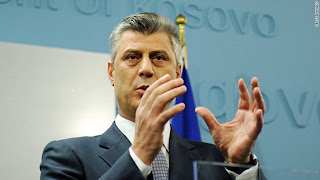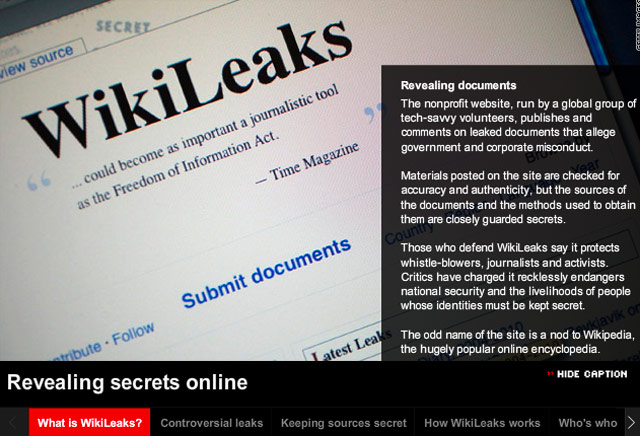A political standoff has forced nearly 4,000 citizens of northwest Ivory Coast to flee to neighboring countries, prompting fears of regional insecurity, according to the United Nations.
The disputed presidential election outcome between opposition leader Alassane Ouattara and incumbent Laurent Gbagbo has threatened to derail a fragile peace process in the west African nation.
The renewed refugee flow has also put neighboring Liberia and Guinea on high alert.
"In my village the majority voted massively for President Laurent Gbagbo, and [the New Forces soldiers] threatened us because of that. They came to our houses and started to harass us, to mistreat us," said Jean-Jacques Issignate, 19, from Nyale, an Ivorian village along the Guinea border. "We fled to the forest ... I spent one week in the forest."
Provisional results from a November presidential runoff intended to end more than 10 years of civil war showed Ouattara as the winner with a nearly eight-point margin.
Earlier this month, the nation's highest court, headed by an ally of Gbagbo, canceled thousands of votes from the north -- Ouattara's stronghold -- and declared Gbagbo the winner with 51 percent of the vote.
Both candidates have said they won and set up parallel governments in the city of Abidjan, where violence between their supporters has killed dozens since results were announced.
Britain's Foreign Office Sunday urged British people to leave the country "due to the threat of widespread instability and violence in Abidjan and other major cities."
Ouattara has unanimous international support. He urged his supporters to forcefully "liberate" the country's national television station and parliament building, sparking a standoff with soldiers loyal to Gbagbo.
The U.N. security council and other world bodies called for Gbagbo to step down, with many world leaders saying Ouattara won.
Political intimidation has forced nearly 4,000 Ivorians to flee to neighboring Liberia and Guinea, according to the U.N. High Commission for Refugees.
Red Cross representatives in Guinea say many more have been separated from their families.
"They're spread out all over. There are others who are in the bush, there are others who we haven't seen, there are small children who have come here without their brothers, there are mothers who are still in the bush, there are fathers who fled to Liberia," said Mayoh Bohmimy, who is managing a U.N.-sponsored camp for displaced Ivorians in Bossou, a Guinean village near the Liberian border.
Clutching silver pots and pans, and hoisting plastic buckets filled with clothes and blankets on their heads, Ivorians such as Jean-Jacques fled without food and water for days.
Their new neighbors include wild chimpanzees that inhabit a reserve in Bossou.
Sebastien Gome, 18, is a Ouattara supporter who left town because his parents had voted for Gbagbo.
He said he found many people sleeping in the forest after he split with his parents for safety.
"I arrived by bicycle at the border, but they told me the road was closed and I should turn around. I had to pass by the forest. I saw many people there so I spent the night with them ... they had set up a tarp and we slept underneath it," he said. Eloi Onseu, a farmer from Nyale, sought refuge in Guinea.
"Our village was majority Gbagbo, so the New Forces were not happy with that," he said. "They entered the village around 3 p.m. one day and started to beat people."
Onseu said they beat residents and and shot in the air.
"That was when people started to flee," he said.
Authorities for the New Forces denied any violence or the existence of refugees.
"We heard reports of Ivorian refugees who fled to Guinea, which is surprising because we haven't seen any ... everything is fine here and people are living in harmony," said Lounceny Ouattara, a commander in the New Forces army.
Meanwhile Sunday, Navi Pillay, the United Nations' high commissioner for human rights, warned of "growing evidence of massive violations of human rights," according to a statement.
Pillay said that more than 50 people have been killed in the past three days and more than 200 injured.
"When people are victims of extrajudicial killings there must be an investigation, and there must be accountability," Pillay said. "However, the deteriorating security conditions in the country and the interference with freedom of movement of U.N. personnel have made it difficult to investigate the large number of human rights violations reported."
The tensions in Ivory Coast have spiked fears that refugees could destabilize neighboring states, and armed groups could attack across porous borders.
"There is the risk any time conflict flares up that ex-combatants ... will follow the potential looting and fighting opportunities in neighboring countries, and will thus become active fighters again, setting the process of post-conflict peace-building back to zero," said Mike McGovern, an expert on Ivory Coast at Yale University in New Haven, Connecticut.
Astrid Castelein, interim head of UNHCR's operations in southeast Guinea, said that contingency plans have been set up in all countries bordering Ivory Coast amid fears of a conflict.
"We have about 3,500 refugees in Liberia, here we have 227 registered by today, and we are really preparing for an emergency situation especially in Liberia where there is already a big amount and they are facing already hard challenges in housing and foodstuffs," Castelein said.
Guinea has mobilized a special commando force to patrol its borders with Ivory Coast since the start of the Ivorian election process, while Liberian president Ellen Johnson-Sirleaf recently warned ex-rebels in her country not to get involved in Ivory Coast's problems.
The southeastern forest region in Guinea saw an influx of refugees from civil wars in Liberia, Sierra Leone and Ivory Coast in the past two decades, and the country's authorities are keen to avoid a similar situation.
Guinean forces are on high alert and have been ordered to patrol the dirt roads, tall grass and thick forest that separate the country from Ivory Coast.
But villagers threatened by political intimidation are concerned about their safety.
"Bullets don't have bias toward supporters of Ouattara or Gbagbo," Onseu said. "I want peace in my country so that my family and I can return home."
Source: CNN












